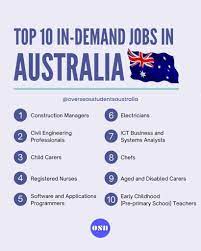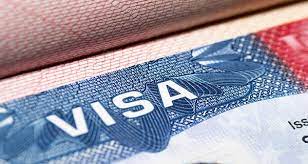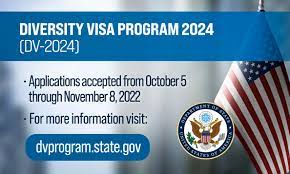Quickest And Easiest Ways to Get Work Permit Abroad
Achieving a degree abroad is a common aspiration, particularly among young individuals from developing nations. However, adding a part-time job to your study abroad experience can amplify its benefits, providing additional financial support and fostering personal growth through skill development, language enhancement, and relationship building. Let’s explore the Fastest and Easiest Ways to Obtain a Work Permit Abroad.
Part-time employment during your studies not only supplements your finances but also enhances your professional skills, linguistic proficiency, and interpersonal connections. While many developed nations permit international students to work alongside their studies, it’s crucial to acknowledge that regulations vary by country. Understanding these differences can aid in choosing the ideal study destination as an international student.
Why is a Work Permit Necessary?
A work permit, typically a legal document, authorizes non-citizens to work in a specific country for a designated period. Issued by the host country’s government, it ensures legal employment and compliance with immigration and labor laws. Without a work permit, engaging in work activities as a non-citizen may incur penalties such as fines or deportation.
Steps to Attain a Work Permit:
The process of acquiring a work permit varies by country, governed by distinct regulations and prerequisites. However, the following general steps are typically involved:
- Determine Work Permit Necessity: Assess whether a work permit is required based on your intended work and host country regulations, as certain exemptions may apply.
- Secure a Job Offer: Obtain a job offer from a prospective employer in the host country, including essential job details such as description and salary.
- Apply for the Work Permit: Submit a work permit application through the relevant government agency, furnishing necessary documents like passport, visa, and qualifications.
- Await Approval: The processing duration varies but may span weeks to months. Additional steps like interviews or document submissions may be necessary during this period.
- Receive the Work Permit: Upon approval, the work permit specifies authorized work type, duration, and any accompanying conditions or limitations.
Navigating the Work Permit Process:
Given the intricacies and duration of obtaining a work permit, seeking guidance from a qualified immigration lawyer or advisor is advisable. Their expertise ensures adherence to all requisites and facilitates a smoother application process.
Easiest Countries for Work Permits:
Identifying the simplest countries for obtaining work permits is challenging due to varying criteria. Nevertheless, certain nations are renowned for their streamlined processes:
- Canada: Boasting an open immigration policy, Canada offers programs like Express Entry, prioritizing skilled worker applications.
- Australia: With a points-based system, Australia awards points based on factors like age, education, and work experience, facilitating visas for temporary workers.
- Germany: Addressing a skilled labor deficit, Germany’s Blue Card program accommodates non-EU workers, allowing employment for up to four years.
- Singapore: Renowned for its thriving economy, Singapore offers programs like the Employment Pass for highly skilled managerial or executive roles.
- New Zealand: New Zealand offers visas such as the Skilled Migrant Category visa, operating on a points system akin to Australia’s.
While these countries feature streamlined processes, meeting specific requirements remains crucial. Consulting an immigration expert ensures adherence to prerequisites, simplifying the application journey.
Other countries may include:
- Italy
- Belgium
- Switzerland
- Czech Republic
- Malaysia
- USA
- Netherland
- Italy
- Finland
- Sweden
- Hungary
What Employment Opportunities are Available for International Students During Study?
While certain countries offer work permits to international students under certain conditions, there are countries where such permits are not provided, barring students from working while studying. However, for those eligible, here are some common types of jobs available to international students during their studies:
On-campus Positions: Universities and colleges often offer on-campus job opportunities, such as roles in the library, cafeteria, or administrative offices.
Off-campus Employment: In select countries, international students may secure off-campus jobs for a limited number of hours weekly, spanning industries like retail, hospitality, and others.
Internships and Co-op Programs: Some academic programs feature internships or co-op programs, allowing students to gain practical experience in their field of study while earning an income.
Freelance or Remote Work: With the proliferation of online platforms and remote work opportunities, international students may find freelance or remote work options that enable them to work from any location.
It’s imperative to note that regulations governing international students’ employment may vary, necessitating consultation with the university’s international student office or a qualified immigration lawyer to ensure compliance.
Key Considerations for International Students Studying and Working Abroad:
- Work Permit Regulations: Understand the specific regulations and requirements for obtaining a work permit in your destination country before commencing work.
- Student Visa Regulations: Adhere to regulations related to your student visa, including limitations on work hours, job type restrictions, and requirements for maintaining student status.
- English Language Proficiency: For study and work in English-speaking countries, demonstrate proficiency through tests like TOEFL or IELTS.
- Cultural Differences: Be mindful of cultural differences and respectful of host country customs and traditions.
- Job Opportunities: Research potential job opportunities in advance and actively seek out opportunities upon arrival.
- Support Systems: Utilize support systems provided by universities and colleges to navigate challenges and adjust to the new environment.
In conclusion, while studying and working abroad as an international student can be enriching, it’s essential to understand regulations, cultural nuances, and potential challenges. With adequate preparation and support, international study and work experiences can be maximized.
Final Thoughts:
Acquiring a work permit for international study and work should be straightforward if you’ve diligently understood the requirements and chosen a country conducive to obtaining one.
Check more






